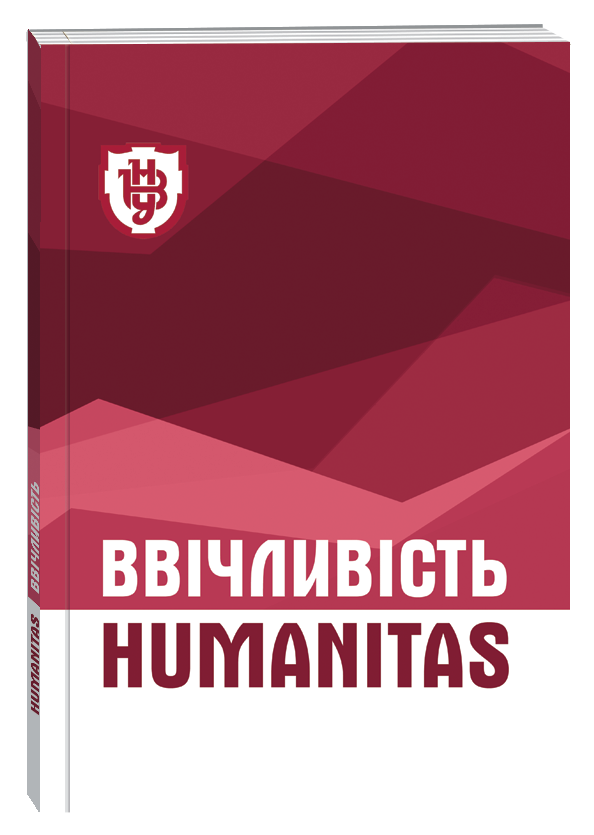REFERRAL AS A MECHANISM OF COLLABORATION BETWEEN STAKEHOLDERS IN SUPPORTING VICTIMS OF DOMESTIC VIOLENCE
DOI:
https://doi.org/10.32782/humanitas/2025.3.5Keywords:
domestic violence, social work, interagency cooperation, referral, crisis assistance, confidentiality, wartime, victimsAbstract
This article examines the referral mechanism as a pivotal element of interagency cooperation in addressing domestic violence in Ukraine. It presents an in-depth exploration of the normative foundations, practical implementation, and ethical dimensions of referral practices within the framework of social work. In particular, the study emphasizes the role of referral not merely as an administrative procedure, but as a complex, client-centered process aimed at ensuring that victims of domestic violence receive timely, targeted, and holistic assistance. The purpose of the article is to articulate the structure, content, and operational conditions of referral as a critical tool for ensuring continuity of care and coordination among institutional actors involved in the prevention and response to domestic violence.The relevance of the research is heightened by the ongoing full-scale war in Ukraine, which has triggered widespread social disruptions, displacement, and trauma. These conditions have led to a sharp increase in cases of domestic violence, particularly affecting vulnerable populations such as women, children, persons with disabilities, and internally displaced persons. The war has also strained the capacity of social service systems and revealed gaps in interagency communication and coordination. In this context, the referral mechanism becomes an essential means of bridging service gaps, strengthening institutional responsiveness, and reducing the risk of retraumatization for victims.The article details a three-stage model of referral: (1) identifying the appropriate service provider based on the victim's specific needs; (2) conducting the referral process with sensitivity, confidentiality, and consent; and (3) ensuring feedback and monitoring the effectiveness of the service delivered. Each stage is discussed in relation to the principles of professional social work, including client dignity, informed decision-making, trauma-informed care, and interprofessional accountability. The study underscores that the referral process should not be reduced to the issuance of a formal document.Rather, it should involve active accompaniment, clear communication, and emotional support, especially in crisis or post- traumatic contexts.Importantly, the article calls attention to structural and professional prerequisites for effective referral. These include trust among professionals across institutions, clarity about service mandates and procedures, mutual respect for roles and competencies, and a shared commitment to the best interests of the client. The research also highlights the importance of preliminary coordination between professionals, confidentiality protocols, and sustained client follow-up after referral.By conceptualizing referral as both a social work intervention and a reflection of intersectoral solidarity, the article contributes to the development of trauma-informed, client-centered service models in wartime Ukraine. It advocates for a human rights–based approach in building inclusive, resilient support systems for survivors of domestic violence–systems that do not only respond to violence, but proactively restore agency, trust, and safety.
References
Актуальні питання соціальної роботи : навч. посіб. / О. Денисюк та ін. ; ред.: О. Епель, Т. Лях, І. Силантьєва. Ужгород : РІК-У, 2023. 420 с. URL: https://elibrary.kubg.edu.ua/id/eprint/47338/ (дата звернення: 18.04.2025).
Дуля А., Лях Т., Спіріна Т. Готовність сімей до повернення учасника бойових дій додому. Humanitas. 2024. № 2. С. 24–29. URL: https://doi.org/10.32782/humanitas/2024.2.4 (дата звернення: 27.05.2025).
Лях Т., Спіріна Т., Клішевич Н. Соціальна профілактика сімейного травматизму в територіальній громаді. Соціальна робота та освіта. 2022. 9 (2). 245–255. DOI: https://doi.org/10.25128/2520-6230.22.2.5
Про запобігання та протидію домашньому насильству : Закон України від 07.12.2017 № 2229-VIII : станом на 19 груд. 2024 р. URL: https://zakon.rada.gov.ua/laws/show/2229-19#Text (дата звернення: 27.05.2025).
Про затвердження Порядку взаємодії суб'єктів, що здійснюють заходи у сфері запобігання та протидії домашньому насильству і насильству за ознакою статі : Постанова Каб. Міністрів України від 22.08.2018 № 658 : станом на 28 берез. 2024 р. URL: https://zakon.rada.gov.ua/laws/show/658-2018-п#Text (дата звернення: 27.05.2025).
Про затвердження форм обліку соціальної роботи з сім'ями/особами, які перебувають у складних життєвих обставинах : Наказ М-ва соц. політики України від 13.07.2018 № 1005. URL: https://zakon.rada.gov.ua/laws/show/z0943-18#Text (дата звернення: 27.05.2025).
Путівник координатора заходів у сфері запобігання та протидії домашньому насильству : практ. посіб. / за ред. А.Б. Блага. Київ : ФОП Клименко, 2020. 156 с.
Соціальна робота з сім’ями: теорії, моделі, ефективні практики : колективна монографія / за ред. В. Петровича, С. Чернети. Луцьк : ФОП Гадяк Ж. В., друкарня «Волиньполіграф», 2021. 342 с.
Створення та впровадження механізму перенаправлення – WCU – Жiночий консорцiум України. URL: https://wcu-network.org.ua/possessing-equal-rights/news/Stvorennja_ta_vprovadzhennja_mexanzmu_perenapravlennja (дата звернення: 27.05.2025).








